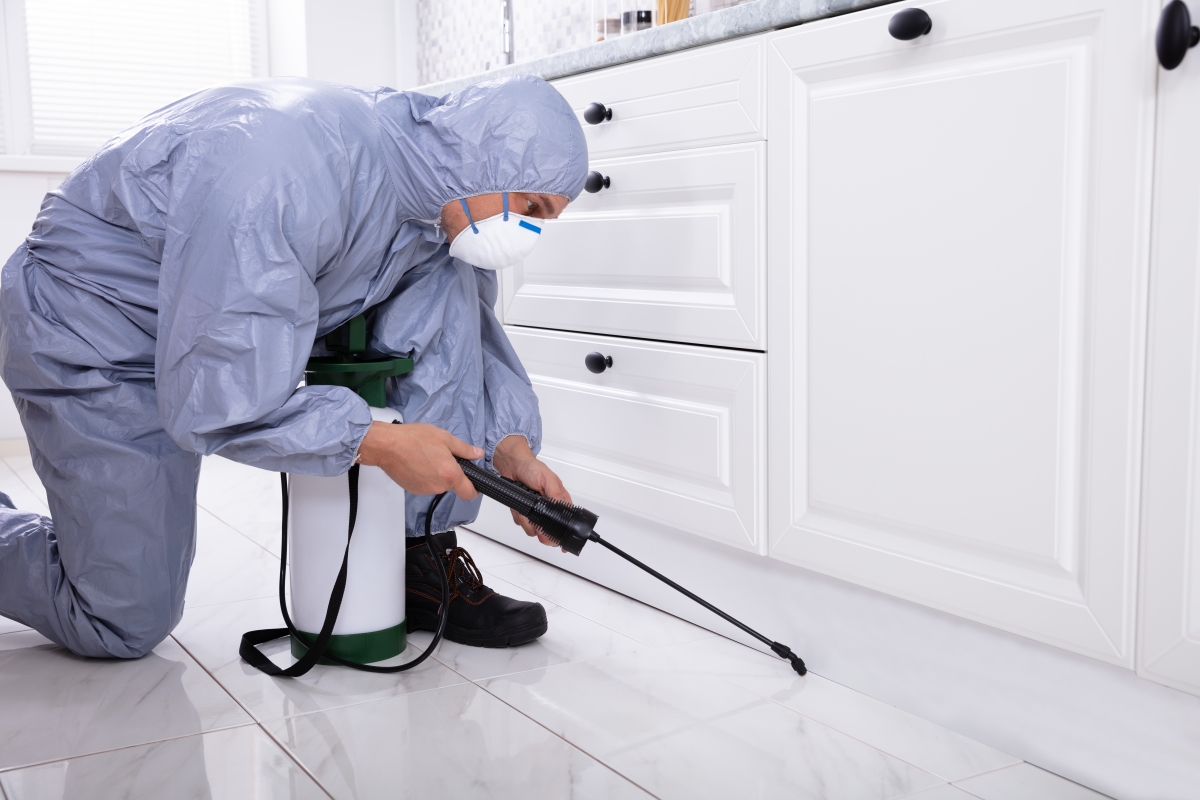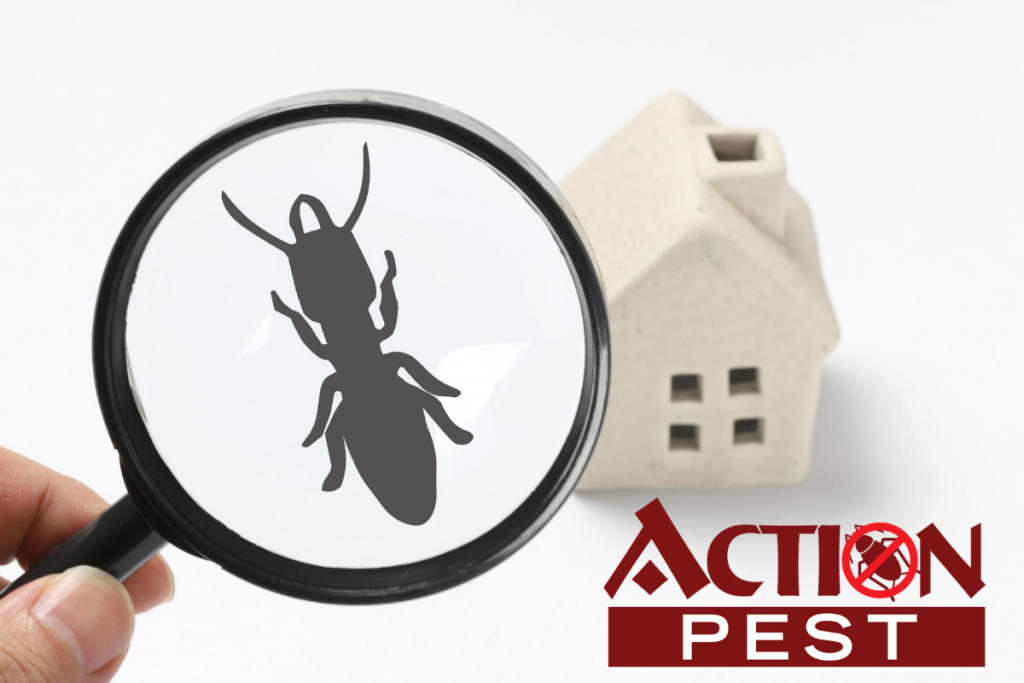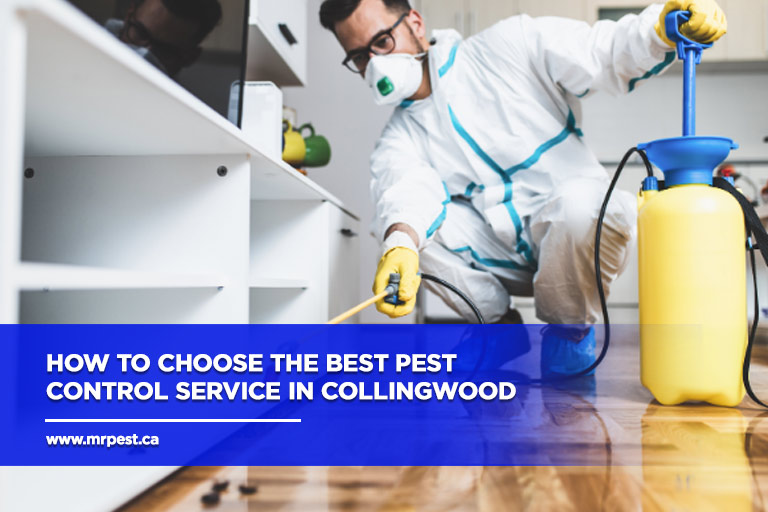Leading Pest Control Solutions to Maintain Your Home Pest-Free
From identifying typical family parasites to executing all-natural and chemical control options, each step plays an essential role in protecting your living environment. Recognizing these numerous parasite control solutions is important, yet the performance of each approach can differ significantly based on details conditions.
Identify Common Household Vermin
Home insects can interrupt the comfort and safety of any type of home, making it important to recognize them quickly. Common home pests include pests and rats that can trigger damage to home and present health and wellness dangers. Amongst one of the most common are termites, cockroaches, and ants.
Ants, especially, are social insects that can attack kitchen areas in search of food. They grow in warm, damp environments and are usually found in kitchen areas and bathrooms.
Termites, on the various other hand, are wood-destroying pests that can seriously compromise the structural stability of homes. Their existence is commonly detected through indications such as mud tubes or discarded wings.
Rodents, consisting of rats and computer mice, are an additional usual household insect. They are not only an annoyance yet also present health dangers by polluting food and spreading out conditions. Determining these bugs early is critical for reliable administration, optimizing the opportunities of an effective eradication and guarding the home setting.
Safety Nets and Upkeep
Effective pest control starts with preventive steps and normal upkeep to lessen the threat of problems. Property owners need to prioritize a comprehensive assessment of their residential properties to determine possible entry factors for bugs, such as splits in wall surfaces, gaps around windows, and rooms under doors. Sealing these openings with caulk or climate stripping can significantly minimize the possibility of pests entering.
Additionally, maintaining a tidy setting is crucial. Frequently decluttering locations, specifically attics and basements, can get rid of concealing areas for pests. It is also important to store food in airtight containers and promptly address spills and crumbs. Outdoors, house owners must maintain rain gutters clean and make sure that standing water is gotten rid of to prevent breeding grounds for insects.
Landscape design techniques contribute too; trimming trees and hedges far from the home can avoid pests from using them as paths. On a regular basis examining and maintaining displays on doors and windows will even more secure versus unwanted invaders. By executing these safety nets and devoting to regular maintenance, home owners can dramatically minimize the risk of insect infestations, guaranteeing a healthier and much more comfy living environment.
Natural Insect Control Approaches
Numerous all-natural parasite control methods supply environmentally pleasant options to traditional chemical treatments. These techniques not only decrease injury to valuable organisms yet also advertise a much healthier living atmosphere.
One effective approach is using necessary oils, such as pepper mint or tea tree oil, which can deter various insects because of their strong scents. Another popular choice is diatomaceous earth, a natural powder obtained from fossilized algae that can kill pests by dehydrating them upon call.
Buddy planting is also a beneficial strategy; particular plants, like marigolds or basil, can repel insects while attracting valuable insects. Additionally, introducing all-natural predators, such as ladybugs for aphid control, can considerably reduce parasite populaces without chemicals.

Inevitably, incorporating these natural pest control techniques can develop a efficient and lasting bug management method, ensuring your home remains pest-free while lining up with ecological preservation efforts.
Chemical Parasite Control Options
When dealing with consistent pest infestations, chemical parasite control options offer a targeted method to handling undesirable organisms. These solutions normally involve the usage of pesticides formulated to remove or deter bugs effectively. Chemical parasite control can be classified right into two main kinds: pesticides, which target pests, and herbicides, made for plant insects.
Insecticides might be available in bug control home numerous forms, consisting of sprays, baits, or granules, permitting homeowners to choose the approach that best fits their requirements. For instance, sprays can provide instant outcomes, while lures might provide even more long term control. It is necessary to pick products that are suitable for the particular kind of bug being resolved, as well as safe for use within a property environment.
While chemical bug control can generate quick outcomes, it is important to follow label instructions carefully to reduce risks to human beings, pet dogs, and valuable pests. Incorporating chemical approaches with preventive actions, such as sealing entry points and preserving cleanliness, can enhance efficiency and decrease the likelihood of future problems. By utilizing responsible methods, chemical bug control options can be an essential part of a general insect management technique.
Professional Elimination Solutions

Professional pest control experts utilize a selection of techniques, consisting of integrated insect monitoring (IPM), which emphasizes the usage of ecologically friendly and non-toxic options whenever feasible. This strategy not visit our website just targets the current invasion but also focuses on protecting against future occurrences by dealing with the hidden problems that bring in parasites.
Furthermore, expert services commonly give service warranties and follow-up visits to ensure the effectiveness of their treatments. This continuous support can provide house owners comfort, recognizing that their living setting is being checked for any kind of indicators of insect revival. In comparison to DIY techniques, which may yield temporary relief, professional elimination solutions supply durable outcomes, making them a beneficial financial investment for preserving a pest-free home.
Conclusion
In summary, maintaining a pest-free home demands a complex technique that incorporates recognition of typical insects, implementation of preventive measures, and consideration of both all-natural and chemical control techniques. Expert extermination services serve as a vital source for resolving severe problems. By embracing integrated pest monitoring strategies, property owners can ensure a lasting option that prioritizes security and efficiency, ultimately guarding living areas from undesirable trespassers while advertising a much healthier atmosphere.
When facing consistent pest problems, chemical parasite control choices provide a targeted technique to managing undesirable microorganisms - coquitlam pest control. Chemical bug control can be categorized into 2 primary types: pesticides, pop over here which target insects, and herbicides, made for plant pests

These services use trained insect control professionals who perform thorough evaluations to recognize the extent of an infestation and the certain parasite types entailed.In recap, maintaining a pest-free home requires a diverse strategy that encompasses identification of usual parasites, implementation of preventive measures, and consideration of both natural and chemical control techniques.